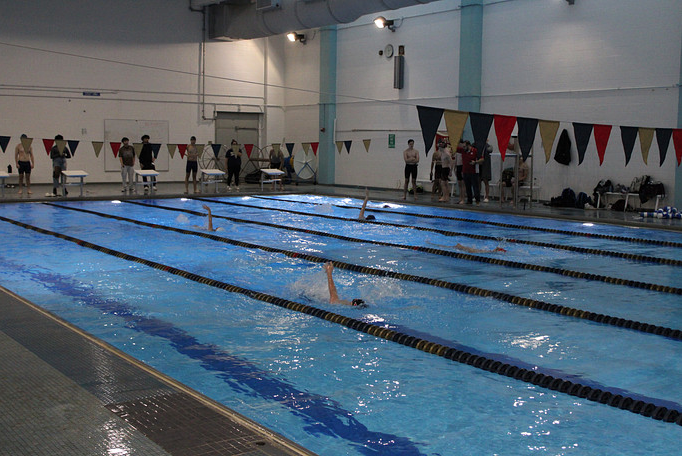
Currently, all gym classes at Malden High School require approximately six swim sessions where students spend their gym period in the swimming pool with the opportunity to play games, build comfort in the pool, learn pool safety, and learn how to swim.
While this all sounds extremely beneficial, these swim sessions have quite a stigma attached to them as many students are anxious about participating in them. ”As for my classes, I would say about 60 to 80% participate in swimming depending on the class,” said gym teacher Mark Gagnon. He further explained how the negative image of the swim sessions leads to many students choosing not to participate, which can alter their overall grades in the class. ”I feel bad for them because they’re missing a big part of life, the beach, pool parties, and stuff like that all because of what they’ve heard from other students,” said Gagnon.
However, teachers offer students one unexcused class where students who choose not to swim can make up one class with an assignment that is considered, “too easy,” by the gym teachers. The assignment requires lots of research about pool safety that students will use both in school and out of school. This act of compromise is to give students who may be uncomfortable with getting in the pool the opportunity to keep their grades stable.
Some students, however, disagree, with the assignments being considered easy. ”I haven’t done the assignments personally, but I’ve seen people do it and I think it’s okay but I feel like it’s a bit longer than it should be, and that alters the way people take in the information,” said sophomore Rachel Lanza. “If things are longer, then lots of people aren’t paying attention to the information; they’re just trying to get it done.” She then emphasized how her gym teacher motivates her enough so that she does not feel the need to not participate and do those assignments.
However, the lack of participation isn’t always due to simply not wanting to swim. “Swim itself is not that bad, but I think it’s a little unfair to girls…due to menstrual cycles. If we can’t be in the pool we have to openly tell the teacher–which isn’t always something that I want to do,” expressed sophomore Ashley Thai. She also mentioned that this is done “so that we can get any credit at all. Even then we can only get half credit.” These frustrations were also expressed by many other female students who think it is unfair for their grades to be lowered over something out of their control.
In order to prevent this cycle of students and teachers misunderstanding each other, gym teachers are trying to offer things that would satisfy students such as ”giving them a little more time for changing and doing activities that they enjoy…and just try to see things from the students’ perspective,” explained Gagnon.
Luckily, this compromise has changed attitudes among students when it comes to participating in swim. ”At first it was very scary as I’ve never been in the water before, but as I got to try it out, I started to get more comfortable being in the water and having that experience with not being on the land,” explained sophomore Christina Robinson who further emphasized the importance of being able to be in the water comfortably and safely. Although there is always room for improvement, the mutual understanding of both students and teachers when it comes to participating in swim continues to get better as the awkward barrier between the two is broken and more compromises are made.




